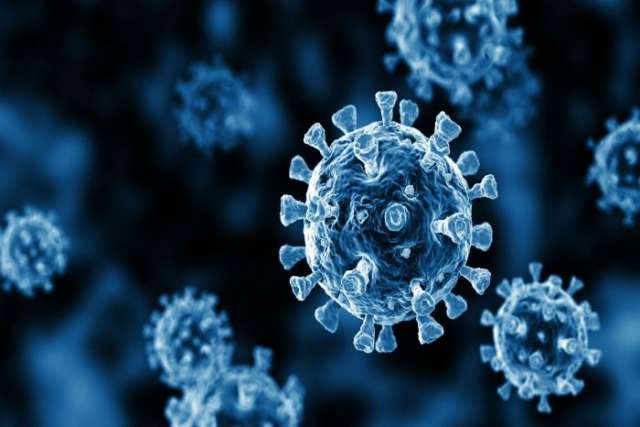A recent uptick in COVID-19 cases nationwide has some people concerned we might be at the start of another surge. Though the numbers are very low as compared to other points in the pandemic, this slight shift has raised some big questions.
Dr. Otto Yang, a professor in the Departments of Medicine and Microbiology, Immunology and Molecular Genetics at the David Geffen School of Medicine at UCLA, clears up some confusion by addressing topics such as whether we should return to regular mask-wearing; if it’s time for another booster; and, ultimately, should we be worried?
How concerning is the recent uptick in COVID-19 cases?
It's certainly a worrisome trend. We need to see if this is a brief blip or a sustained increase. Generally, hospitalizations and deaths lag behind testing and case numbers, and the concern is that these will start increasing too after several months of steady decreases.
In my personal opinion, the public has become too complacent about COVID-19 being “over,” and the virus is still very much with us and a threat to vulnerable persons in our society.
Is the rising EG.5 subvariant something to be highly concerned about?
Not at the moment. So far it does not appear to be more deadly than the other omicron subvariants. It does seem more transmissible, so it spreads more easily and may lead to more infections, however.
Can we expect to see other variants emerging soon?
This is hard to predict, but my guess is the pace of new variants will continue to slow.
The reason for the rapid development of new variants in the first couple of years of the pandemic was because the virus was new in humans and still evolving to adapt to the new host. At this point, it has much less room to “improve” its ability to persist in human populations, and therefore there is less drive for rapid evolution like we saw initially.
This is reflected by the lack of new major variants since omicron for quite some time now, although subvariants of omicron like EG.5 are still arising.
Do current boosters work against EG.5?
The vaccines generate two main types of immune responses. Antibodies work to prevent early illness. These wane rapidly after vaccination and are very prone to being ineffective against variants. It's likely that the antibodies against the early omicron variant given a few months ago are no longer effective.
However, “killer T cells” are not much affected by the mutations in the variants, and work quite well against all current strains of the virus. These wane too, but not as quickly. This arm of the immune response is perhaps more important because killer T cells are the main response that prevents severe illness and death once the virus has gotten past antibodies. So even boosters against earlier variants will continue to protect against severe illness.
Should people resume masking and, if so, in what settings?
This is a contentious point. I've never stopped masking in public indoors. My personal risk is probably small because I'm overall healthy, vaccinated and not elderly.
Although masking is not nearly 100% effective preventing the spread of infection, it reduces the risk. For one person, that's not necessarily significant, but across society the effect is compounded. There are many vulnerable people (patients with weak immune systems, the elderly, pregnant women, etc.) who can suffer severe consequences, so I think it's a small price to wear a mask if it contributes to protecting these persons.
The other thing to keep in mind is that severe COVID-19 and death are not the only serious outcomes from getting infected. People with mild illness have increased blood clotting that can precipitate heart attacks and strokes, and many people get some version of “long COVID” that can include severe fatigue, mental cloudiness and other symptoms for which we have no current treatments.
What about returning to strict handwashing protocols?
This has always been a good idea because so many viruses are spread by hand contact. SARS-CoV-2 actually isn't very much spread through such contact, but more through respiratory secretions in the air.
However, I think we all saw the benefits of handwashing and masking during the pandemic, in terms of a huge drop in other illnesses like colds and flu.
When would you advise people to get their next booster – does it depend largely on age and any underlying health conditions?
I would strongly encourage everyone to get booster vaccinations, for two reasons.
First, as I mentioned earlier, even if your risk of dying is low, there are other serious risks. These are mitigated by vaccination.
Second, as I also mentioned, the personal protection from vaccination compounds to important reductions in virus across society as a whole, and illnesses in the vulnerable.
Given how many people have had COVID-19 and/or been vaccinated against it, would an extreme spread of the virus even be possible?
It depends on how one defines “extreme spread.” Since immunity, particularly antibodies that prevent early illness, wanes rapidly, we will probably never have “herd immunity” that keeps the virus from spreading and persisting in society.
It is conceivable that the virus could infect a sizeable number of people in whom the antibodies have waned and/or don't work against a particular variant, leading to large surges in hospitalizations and deaths in the vulnerable.
When will we know if COVID has become a seasonal illness, in the way flu has?
This is difficult to say. When a new virus enters humans, it may take a few years to reach its final pattern because initially both the virus (genetic variations) and human immunity (number of people who have some immunity) is in a state of flux. We should probably know within the next couple of years, now that the situation is more stable.




